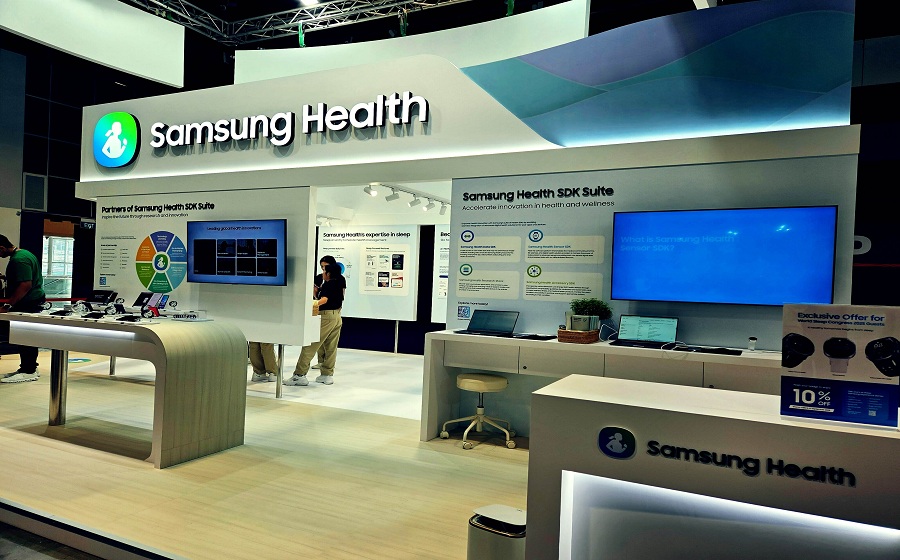The Dev Discourse – A Daily Roundup from #SDC2017
Samsung Developer Program
The first day of #SDC2017 is in the books and what a day it was. A sold out crowd of developers, creators, designers, partners and sponsors gathered at the Moscone Center here in downtown San Francisco to hear about how Samsung is unifying its IoT services under SmartThings, what the next-generation of Bixby 2.0 looks like and how a Google partnership will create advanced AR capabilities on more Galaxy smartphones.
(Oh yeah – we’re getting pretty excited for Stan Lee and Rain Paris tomorrow.)
In a very busy day, these were the highlights:
The Internet of Things for Everyone is Announced
During the kickoff keynote speech, Samsung announced it is combining its existing IoT services—SmartThings, Samsung Connect, and ARTIK—into one unified IoT platform: SmartThings Cloud. It will provide a single, powerful cloud-based hub that can connect and control IoT-enabled products and services from a unified touchpoint. SmartThings Cloud will build one of the world’s largest IoT ecosystems, and will provide the infrastructure for a connected consumer experience that is innovative, versatile and holistic.
Yes! Merging all @Samsung #IoT services under @smartthings platform, sez @SamsungMobile pres DJ Koh. #sdc2017 pic.twitter.com/NALwW41zil
— MikeFeibus - Be well, people! (@MikeFeibus) October 18, 2017
With it, devs everywhere will have access to one cloud API across all SmartThings-compatible products to build connected solutions and bring them to more people. It will also provide secure interoperability and services for businesses developing commercial and industrial IoT solutions.
An Even Smarter Bixby
Next, Samsung announced it is shifting intelligence beyond devices and into a ubiquitous, personal and open ecosystem with the introduction of Bixby 2.0 with SDK, integrated with Viv technologies.
Bixby 2.0 will be available on a variety of devices including Samsung Smart TV and the Family Hub refrigerator. With it, Bixby will sit at the center of consumers’ intelligent ecosystem. Bixby 2.0 will introduce deep linking capabilities, and enhanced natural language abilities to better recognize individual users and create a predictive, personalized experience that better anticipate needs.
FaaS? Fridge as a Service. #Bixby comes to #familyhub on @Samsung appliances. #IoT #sdc2017 pic.twitter.com/rPzFVJVuIL
— MikeFeibus - Be well, people! (@MikeFeibus) October 18, 2017
In order to build this faster, easier and more powerful intelligent assistant platform, Samsung will provide the tools to bring Bixby 2.0 into a wider number of applications and services. The Bixby SDK will be available to select developers and through a private beta program, with general availability coming in 2018.
Samsung also demonstrated Project Ambience, a small dongle that can be applied into a wide variety of ordinary objects, allowing them to seamlessly connect, and create a ubiquitous Bixby experience.
Project Ambience: Samsung has a dongle prototype that lets you turn any speaker into a smart speaker #SDC2017 pic.twitter.com/xhJyYgUELt
— Karissa Bell (@karissabe) October 18, 2017
A New Venture into AR
Finally, Samsung announced that in order to unlock new realities such as VR, the company is committed to continuing to advance technologies in AR. Through a partnership with Google, developers will be able to use the ARCore SDK to bring AR to millions of Samsung consumers on the Samsung Galaxy S8, Galaxy S8+ and Galaxy Note8. This strategic partnership with Google offers new business opportunities for developers, and a new platform for creating immersive new experiences for consumers.
AR is the next Reality #sdc2017 @SamsungDevUS @Samsung pic.twitter.com/4ZHgfRdVI7
— Pranav Mistry (@pranavmistry) October 18, 2017
Other highlights in a day full of them include the SDK Bar, where devs learned about the latest/greatest SDKs and APIs to add to their toolboxes. There were many to discover, but a few of the really popular ones included the following:
- The Bixby Home Card SDK, which allows devs to get the right information to their app service users at the right time. Card users can interact with card content that is automatically kept up-to-date and with richer content.
- The Gear Apps – Tizen SDK which helps devs design and develop standalone and companion apps for Samsung Gear S2 and S3 wearable devices (which combined for 19% market share in Q1).
- The SmartThings API, which allows device makers, service providers, telco partners and devs to create automations and cloud-to-cloud device integrations to build new IoT solutions.
- The Samsung ARTIK Smart IoT platform, which brings hardware modules and cloud services together to speed up your time to market.
- The Smart Home Cloud API, which provides methods to control and monitor Samsung Smart Home devices. Through this Smart Home Control Service, a partner’s app can connect with various devices and provide enhanced services.
And that was just Day One. Day Two will bring more exciting announcements and dev insights. Watch for the second installment of the ‘The Dev Discourse – A Daily Roundup from #SDC2017’ for more tomorrow, and of course, follow us on Twitter @samsung_dev and join the conversation using #SDC2017.


